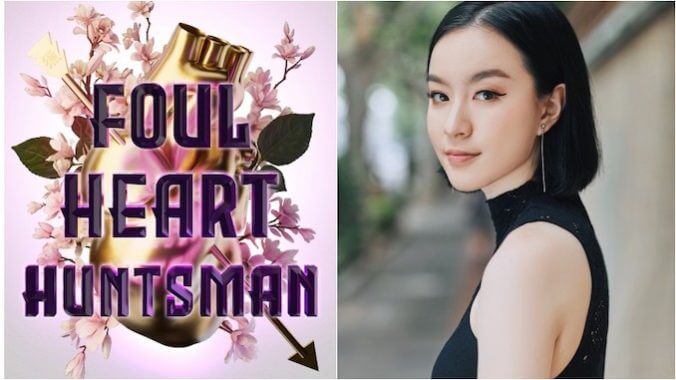As She Likes It: Chloe Gong Talks Foul Heart Huntsman, Setting Shakespeare in Shanghai, and More

Chloe Gong’s debut novel, These Violent Delights, enchanted readers with the glitz and glamor of 1920s Shanghai—and terrified them with the dark undercurrents, not just of gang warfare, but of an evil lurking beneath the surface. From that first book, Gong showed herself to be a rising star of SFF, both in the YA sphere and, with her 2023 novel Immortal Longings, in the adult market.
Gong’s newest book, Foul Heart Huntsman is now hitting bookstore shelves, and it marks not only the conclusion of her “Fortune” duology but the final book of her Secret Shanghai series. The book follows Rosalind, an immortal assassin who works for the Chinese Nationalist government, and her sister, Celia, a Communist spy, as both of them try to stop mad scientists from giving over their country to the Japanese Empire. Rosalind’s cover has been blown, but rather than allow the Nationalists to retire her, she decides to make a public press tour, revealing herself as the poisoner Fortune across the countryside.
But it’s not all political. The personal stakes? Orion, Rosalind’s mission partner—with whom she has fallen in love—has been captured by the scientist, who is also his mother, and who has been experimenting on him for years in her attempts to create a super soldier. Celia’s mission partner, Oliver, with whom she is in love, is Orion’s brother. And Orion’s best friend, Silas (a triple agent) and younger sister, Phoebe (whose alter ego was revealed at the end of Foul Lady Fortune, but is hidden here for fear of spoilers), have their own thoughts about how to get him back.
If none of this sounds like Shakespeare’s As You Like It, don’t worry—you need to know nothing about the play to follow Gong’s action adventure. Just like in the first duology, which transformed the story of Romeo and Juliet, Foul Lady Fortune and Foul Heart Huntsman pay homage to Shakespeare’s original play, but become wholly their own story. That tale is sure to leave readers’ hearts pounding (and their eyes weeping at all the right moments) as they root for a happily ever after, against all the odds. This blend of Shakespearean influence, real history, gothic horror, spy thriller, and romance pulls out all the stops to hit readers right in the heart.
We had a chance to catch up with Gong herself about the book’s release, how it feels to wrap her Secret Shanghai series up, favorite literary influences, and lots more.
![]()
Paste Magazine: You’ve had a busy year—and a busy few years since your debut! With your first book making such an impact on readers from the start, what has it been like with each subsequent installment? Was These Violent Delights hard to follow?
Chloe Gong: It’s been a complete whirlwind. I feel like I already started with a lot of chaos with that first book. It was a COVID release. It was my first book, and the industry was moving into an entirely different format of release. People weren’t discovering it by browsing in bookstores; people were discovering it online.
And then it only got more wild! The second book was that first duology’s finale. People were excited about it. I was really nervous about it. The third book was a spinoff, so I was really nervous about how it would be received. It had to be different enough to be a spinoff, but not so different that it wasn’t in the same universe. This one is the conclusion conclusion!
Every single one has brought something new for me to have a panic attack about.
Paste: Wait, conclusion conclusion? There’s no more Secret Shanghai after this?
-

-

-

-

-

-

-

-

-

-

-

-

-

-

-

-

-

-

-

-

-

-

-

-

-

-

-

-

-

-

-

-

-

-

-

-

-

-

-

-








































